When We Were Women, Orange Tree Theatre
Thursday 1st October 2015
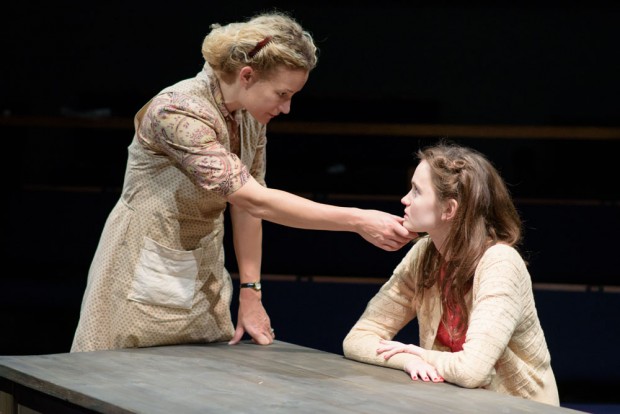
When in the mid-1980s playwright Sharman Macdonald needed a subject for the follow up to her 1984 hit debut, When I Was a Girl I Used To Scream and Shout, she turned — like so many British writers do — to history. The result is this play, which was first seen at the National Theatre in 1988, and which is set in Glasgow in the years 1943-44. It is the middle of the war and Scotland is low on food and high on anxiety: the young men are away fighting, and many won’t come back. But the sense of national emergency is amplified though the attitudes of the older generation to matters of sex and intimacy.
The situation is simple. Isla is a young, working-class woman who knows her own mind and is attracted to men and to drink. She’s living that moment in youth when anything seems possible, and when the dreams peddled by Hollywood films (it’s the age of Clark Gable after all) might touch anybody’s life. Living in a Glasgow tenement with her mother, Maggie, and father, Alec, she is well aware of the privations of war: the lack of food in the kitchen and the excess of drink in the bars around them. When she meets Mackenzie, a naval officer and ladies man, the tension between romance and reality gradually exerts its hold.
Unluckily for Isla, Mackenzie has a secret. As Cath, a woman from his past, appears ghost-like on stage, the sense of done deeds and old stories slowly begins to strangle present joys. Starting off as an almost comic account of a drunken father, a respectable mother and a lively daughter, the play turns into tragedy as Isla and Mackenzie marry, and begin a new family. But the signs, Macdonald makes sure, are there right from the off: the play’s first moments see Maggie looking desperately for her hat — no respectable woman would be seen outside without one.
Added to this working-class respectability is a fear of God. As Maggie waters down Alec’s whisky, she knows she is being watched by God, who knows everything. By contrast, and with his knowledge of the wider world, Mackenzie insists that “We sin in a minor key”, and when he meets and chats up Isla, looking splendid in her red dress, he argues that “We’re all poor sinners in this vale of tears”. In fact, God is so present that He is an offstage character here — ever watchful, ever judging. But although everyone suffers in this story, Macdonald makes it clear that female pain is truly terrible.
When We Were Women is beautifully written, and Macdonald’s dialogues often feature a poetic repetition, in which one word is spoken and then echoed by another character, its sense intensified by insistent reiteration. A simple example would be the rhetorical: “Harm, what’s harm, what harm is there?” It’s a time of food and clothing shortages, and edibles feature often in the family dialogues: potatoes, sausages, chocolate. At the same time, the anxieties of poverty are very near the surface. The fear of starvation and the necessity of buying goods on the black market are ever present.
By using a neatly fragmented structure, in which the story jumps from 1944 to 1943, and back again, Macdonald shows how the past is always in our present thoughts. This beautifully controlled narrative also makes the fate of Mackenzie slightly obscure halfway through the second half, which plays with our deep sense that we need an explanation for tragic events; we need to know what bad things mean. If in the end Mackenzie suffers less than Isla, there remains a grim feeling that while everyone talks to God, He doesn’t really hear.
Macdonald conveys an exquisite sense of time and place, and clearly articulates the conflicting emotions of the characters. A strong sense of feminism runs through the play, as Maggie tells Isla to “Keep a bit of yourself private”, and then fiercely advises her: “Never let a man think he’s got the better of you.” The tone is often hard, like the rocky uneven roadway of designer James Turner’s fittingly sparse set, and there’s a certain adamantine quality to the unyielding morality of the time that gives the sadness depth. On the other hand, this is alleviated by a knowing sense of humour which nicely balances the darker moments.
Eleanor Rhode’s production, a co-production between Snapdragon and the Orange Tree, is suitably dark in atmosphere, while remaining nimble and light on its feet. Abigail Lawrie, making her stage debut, is compelling to watch, and has a fine mixture of adventurousness and vulnerability. There a beautiful dance scene and a long tough moment when she tries to scrub off her sin from her nightgown and body. Lorraine Pilkington and Steve Nicolson are both good as Maggie and Alec, trying to do their best in a world of strict respectability, when marriage for women was both a fulfillment and a trap. Mark Edel-Hunt’s Mackenzie has all the charm and haunted bravado necessary for his character. This is a wonderful revival of an excellent play.
© Aleks Sierz

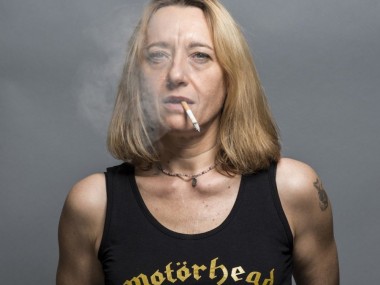
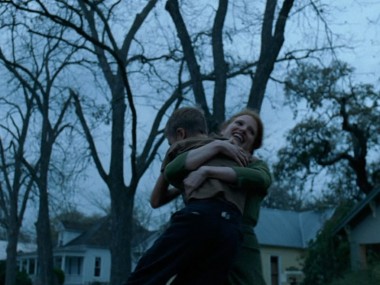
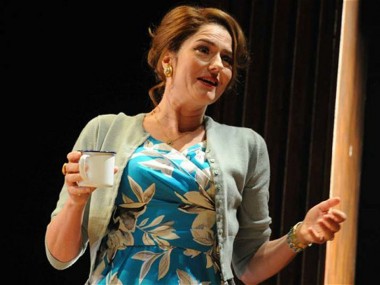
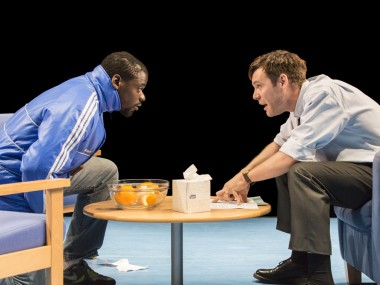
1 Comment
on Monday 5th October 2015 at 1:26 pm